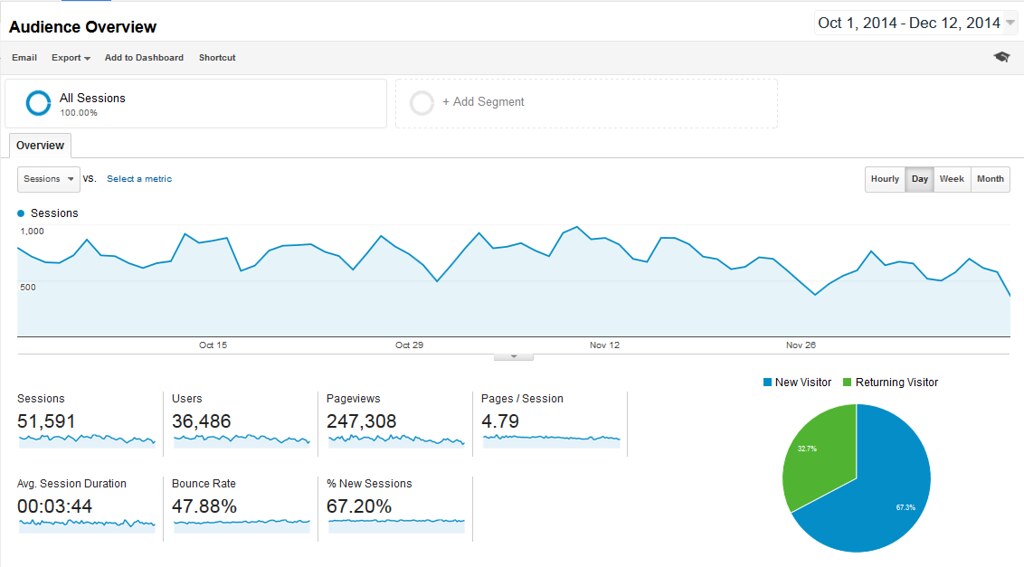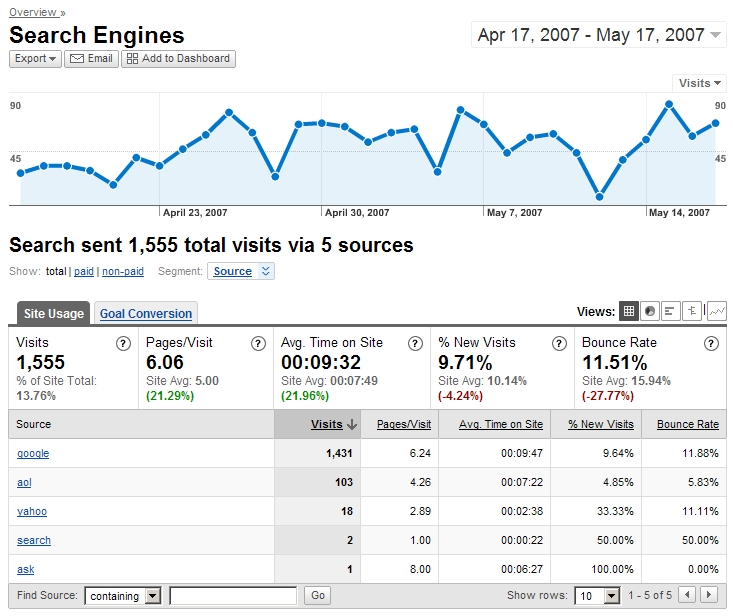Many businesses need SEO to boost their online presence. As an SEO analyst, I help them find the perfect strategy. If you want to take this role, I will share everything about it.
In this guide, you will learn how to become an SEO analyst in seven steps. I will share the skills and qualifications for this job. So, let’s explore!
Overview of SEO Analyst
SEO (Search Engine Optimization) refers to the process of increasing the website’s traffic through search results. This traffic should be high in quantity and quality.
In other words, SEO increases the number of users on the internet. It ensures that the content from that website can rank high in the search results. From that, users are more likely to access it.
Who Is An SEO Analyst?
An SEO analyst helps companies drive digital traffic. They work with data to monitor the website’s performance. After analyzing, they know parts to improve.
SEO analysts use SEO tools and their analytical thinking to handle website metrics. They also work with the marketing team to ensure the website’s traffic.
Working Environments
SEO analysts often work in a marketing company or agency. Sometimes, they are part of a company’s marketing team. Others may work for consulting firms to help clients with their marketing campaigns.
This job involves sitting at a desk. But if you have clients in other places, you will need to meet them. Since SEO analysts do most of their tasks on computers, they can also work remotely. Working as a freelancer is another option.
Duties Of An SEO Analyst
Analyzing SEO is the primary role, but it involves many tasks. I will show you my typical work day so you understand more about my job:
- Keyword research: I find the right keywords that people often use in search engines. Then, I identify the relevant ones to their website’s content.
- Content optimization: After identifying the keywords, I optimize the content of my website. The content here also includes titles, headings, and meta descriptions. It’s how I work with on-page SEO.
- Off-page SEO: I add more links to a website. Then, it will rank higher on search engines.
- Backlink generation: I also find other reputable websites to link to my content. Backlinks from those websites will improve my site’s authority.
- Traffic generation: The number of visitors to a website, or traffic, is important. So, I have to monitor the traffic constantly.
- Data analysis: Another task is to create reports that illustrate the website’s performance.

How To Become An SEO Analyst
You have many things to learn to become an SEO analyst. And when studying, gain experience and improve skills, too.
1. Obtain A Degree
Obtain a bachelor’s degree first. This program takes about four years. You may also need to get an internship at the end. Here are some education options to consider:
- SEO & digital marketing (Diploma): This program focuses on SEO and digital marketing basics. It teaches you how to optimize websites for search engines. You can learn some strategies to promote them online.
- Digital marketing (PG diploma): This postgraduate diploma in digital marketing goes deeper into different aspects of online marketing. Aside from SEO, you can learn social media marketing.
- SEO & digital marketing basics (Diploma): As the name implies, this course is a good starting point for your career. It includes the basics of this field. You will get essential concepts and skills for your future jobs.

2. Take SEO Courses
The diploma may show you the fundamentals of SEO. But if you want to focus on specific aspects of the field, take SEO courses. Most of them are online and affordable. You can consider these courses:
SEO Training Course From HubSpot Academy
Hubspot is my best friend. It offers many SEO courses that help you master this marketing aspect. The SEO course on this platform has four units, each with a test at the end. You can watch videos to learn them.
When taking the course, you will discover many SEO concepts. You can then also work well with search engine algorithms.
SEO Classes From Udemy
Udemy offers both free and paid SEO courses. You can choose the 3.5-hour training course for free. Another option is the ten-hour paid classes.
Udemy is an excellent destination for SEO analysts. You can access it to explore SEO techniques and tools. It may also provide practical experience.
SEO Training From Yoast
Yoast is another famous name in the SEO industry. It focuses on SEO strategies for beginners and experts.
When choosing this course, you can get pro tips for quick wins to improve your website. It teaches you the technical side of SEO optimization, too.

3. Understand Search Engines
The ultimate goal of SEO is to make your content rank high in the search engines. Then, people can find it easily. So, even if your content benefits readers, it can’t appear in search results if search engines don’t understand it.
Hence, as an SEO analyst, you have to learn how search engines work. There are three things you need to know:
- Crawl: The search engines find new content by following links on websites. Sometimes, they read sitemaps.
- Index: The engines understand what’s on the page. They can even store and organize the content.
- Rank: Finally, they figure out which pages are the best match for what people search for. Then, they show the most relevant results.
Search engines should rank your content well. But before that, they need to crawl and index it.

4. Learn SEO Tools
I work with many tools to monitor the performance of my website. They will, therefore, help me improve it.
Google Analytics
I highly recommend Google Analytics and Search Console. They provide you with valuable data directly from Google.
You can use these tools to track the rankings of your website. They also allow you to see how your content leads to revenue and conversions.
Clearscope
I also use Clearscope to create content optimized for target keywords. Word count and keyword usage are some of its outstanding features.
Semrush
Semrush is quite costly. Even so, I do not mind spending a few bucks on it because of its power.
Semrush helps you track rankings and analyze backlinks for your content. Plus, you can do keyword research to ensure your keyword list is effective. And when the content is on your website, Semrush will assist you in reporting on its SEO metrics.
Ahrefs
Like Semrush, Ahrefs gives you in-depth data. It offers many free tools like the keyword generator and backlink checker.
Ahrefs also provides a website checker tool. So, after launching the content, you can use it to check your site’s technical SEO.
Moz
If you have just started, consider this beginner-friendly tool. Most of the features here are easy to use.
Surfer SEO
This tool is one of the best options for content optimization. It combines search data with AI to help you create high-quality content.
Moreover, Surfer has a free Google Chrome extension named Keyword Surfer. This feature allows you to get quick SEO metrics. It can also suggest keywords in Google search results.

5. Get Familiar With Data
Whichever SEO tool you choose, you will work with lots of information and numbers. All of them help you measure how well your SEO efforts work.
There are many SEO metrics to check, but I focus on these ones the most:
- Positioning: This metric shows how close your page is to the top in search results.
- Impressions: When checking these metrics, you can tell how many times your page appears in search results.
- Clicks: People may click your page if your content seems attractive to them.
- CTR (Click-Through-Rate): This metric is the percentage of times users click your page to its impressions.
- Conversion rate: It’s the percentage of people who click on your page and take some action (like downloading).
- Organic sessions: This figure measures how many times people view your page in a web browser.

6. Develop Your Skills
It’s also essential to develop skills for your job. You can work on any skill, depending on your goal and your company’s requirements. Yet, the most important ones for an SEO analyst are:
- HTML and CSS: You don’t have to code. However, it would be best to know some basic website coding to create good content for your website.
- Writing: You should be good at writing. Remember that SEO writing is different from what you may think. Your content should follow SEO guidelines to help your website rank better.
- Data analysis: SEO tools will give you SEO metrics. Yet, you must still analyze them carefully to improve your website.
- Problem-solving: Sometimes, you may notice changes in the SEO metrics. In this case, try to figure out what is happening and how to fix them.

7. Take An Internship
Taking SEO courses is not enough. Instead, consider an internship to practice what you’ve learned. Internships give you a chance to work in real cases. Then, you can gain more experience. They also train you for the job.
8. Grow Your Network
Connect with other SEO experts as well. If you have a LinkedIn account, access them on this platform. Sometimes, they will give you job opportunities.
Also, watch YouTube videos or join SEO communities to get more SEO tips. Then, be open to chatting with others in the comments.

Benefits and Challenges
You will get many benefits when working as an SEO analyst. However, this job comes with a lot of challenges, too.
- SEO analysts can earn a good salary.
- SEO is essential for businesses. Thus, skilled SEO analysts are in high demand.
- There are many opportunities to work abroad because SEO is a global field.
- You will contribute positively to your company’s online growth as an SEO analyst.
- Even if you are doing well, rankings may suddenly drop when your clients change their priorities.
- Balancing workload and client demands is really challenging.
Salary and Job Outlook
In 2023, an SEO analyst in the US can earn about $76,539 per year. The exact rate varies depending on their location, skills, and experience.
SEO is essential for improving a website’s visibility. Thus, many companies need talented SEO analysts, making it a promising career.
When you choose this journey, your rewards can be a high salary and numerous job opportunities. Hence, feel free to explore yourself and excel in this role.

FAQs
1. What skills does an SEO analyst need?
To become an SEO analyst, you must understand search engines and SEO tools. Writing and problem-solving skills are crucial, too.
2. Is SEO analysis a good career?
Yes. This job opens up many opportunities. You can work for a company or have your own clients. Moreover, since many businesses rely on search engines, SEO is in high demand.
3. Is it hard to become an SEO analyst?
Yes. You need marketing expertise and technical skills to take this role. You will also have to learn a lot about SEO marketing.
4. Is SEO analysis a stressful job?
Yes. Any job can be really stressful, depending on the company’s expectations. However, compared to IT jobs, SEO roles are generally less stressful.
Final Thoughts
With the right skills and determination, you can become an SEO analyst. But this industry is constantly changing. So, even when you are working in this role, keep learning to develop.
This journey will be challenging. I had a hard time, too. But trust me, you can still nail it with your passion for marketing.
